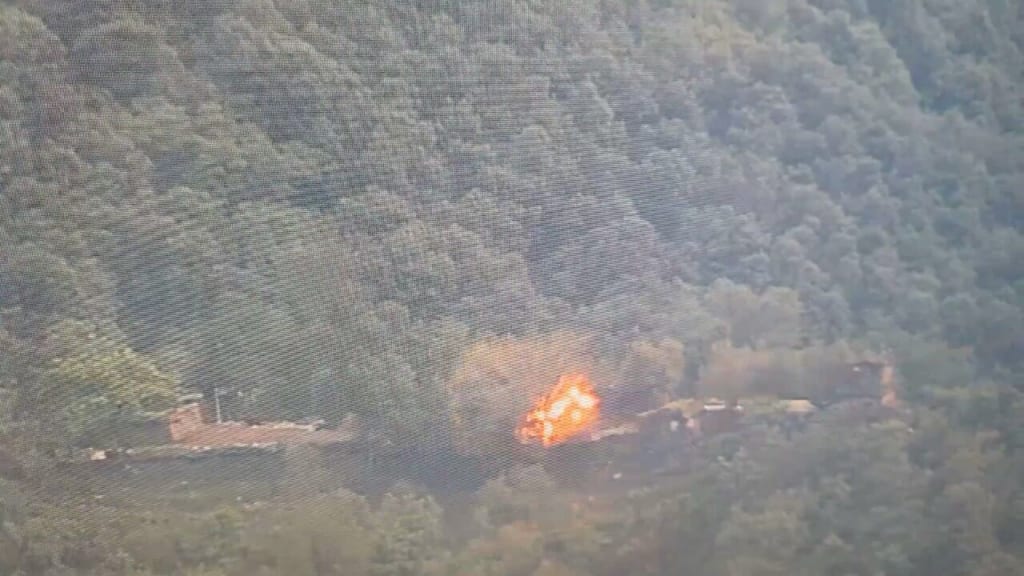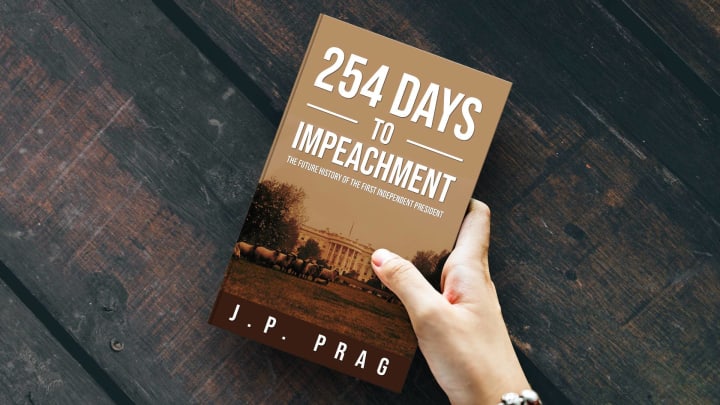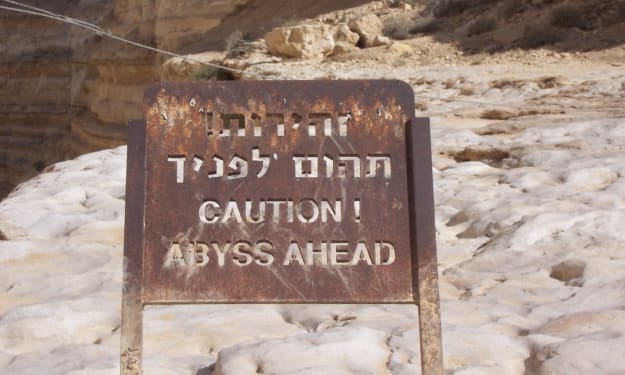
May 14th (Detroit, MI) – Is the President of the United States a person of peace, or a purveyor of war? As details leak out from behind the scenes of the White House, the question is becoming more and more difficult to answer.
On the one hand is Inauguration Day, when the President unilaterally pared down the country’s nuclear arsenal, closed Guantanamo Bay, and withdrew troops from around the world. On the other hand, during that same flurry of Executive Orders, the President demolished the top peacekeeping force in the world in the United Nations and intentionally antagonized other countries by implementing a new labeling system for them, judging where they fell on a loosely defined scale.
Just a few weeks ago, the President initiated a reconciliation process between Israel and Palestine, which has been a nearly hopeless endeavor for decades. Yet in order to get that kick-started, the President reportedly had to threaten both parties with potential annihilation. When asked about this tactic upon returning stateside, the President gave a perplexing answer:
You know, in many ways, my mind is not focused on the Middle East. If war breaks out there, it won’t be the end of the world, like so many people believe. It will be bad, but it won’t be thermonuclear.
When pressed further about this stance, the President actually demurred and brought up an entirely unrelated situation of concern:
Do you know what I do worry about? Kashmir. India and Pakistan—two nuclear armed nations that hate each other—are constantly fighting over who controls slivers of that land. And they are not alone, as China also claims part of the mountainous region! So here we have three nuclear armed nations that are trigger happy and fighting over a territory that wants nothing to do with any of them. That, I’m afraid, is really the most dangerous setting on Earth.
This little slip may have actually confirmed a rumor about the President’s long-term plans for dealing with nations low on the “Freedom Index”.
Is a Civil War Breaking Out in China under the President’s Direction?
As is well-known at this point, the President appears to want to keep the United States out of being directly involved militarily with nations around the world. However, that does not mean the administration is keeping its hands completely out of affairs abroad. From the now infamous Women’s History Month speech, it is quite clear that the President is staying well versed in the current political climate elsewhere in the world. Similarly, sources in the White House have revealed the President is in regular contact with leaders and opposition members worldwide, offering advice, direction, and assurances.
Yet, more so, while the President has no qualms about recalling armed forces, clandestine ones are another story entirely. While not as well-covered as The Ten Pronouncements, the President has signed a slew of seemingly minor Executive Orders. Among them were a set of instructions for the Superintendent of Safety and Security to increase and streamline information sharing between all investigative, undercover, and secret agencies—such as the CIA, FBI, and NSA, among others—so that they would work in concert. This suggests that while direct intervention may be on the decline, covert activities could be on the rise.
Which brings us back to what the President might have accidently verified. Recently, there have been a spate of seemingly unrelated attacks against government institutions and military installations in China. The only thing they have in common is that they have originated from areas that China is occupying by force—notably Hong Kong, Macau, Tibet, Ladakh, and among the Uyghurs in the region now known as Xinjiang. It has been an unsolved mystery where these insurrectionists are even getting their arms from and how they seem to be coordinated in their actions. It is almost as if someone is managing disparate groups centrally in order to disrupt China, keeping it distracted with internal matters so that it cannot be involved with external ones.
Why would the President of the United States be suspected of being the leader of this underground uprising? Because in a resurfaced interview from years ago on a relatively unknown podcast, the then-future President told the hosts:
Sometimes, unfortunately, we need war. But which ones do we need, and how do we conduct them? Getting directly involved is not the solution, but perhaps we can help from behind the curtain.
Later on in the same interview, the one-day Commander-in-Chief expounded further. Specifically, the person now sitting in the oval office presented a plan that could only be described as self-serving manipulation:
Sending our troops in to settle disputes resolves absolutely nothing. In Vietnam, Iraq, and Afghanistan, all we did was cause chaos and leave. And when we exited, those countries just fell again to some revitalized totalitarian dictator; really, whoever was the most organized. The only way to win is for the people there to rise up and take control for themselves. And a civil war—especially one on multiple fronts—would, at the very worst from our perspective, take an unfriendly nation off the table, which isn’t actually too bad of a situation to be in.
Does this not sound exactly like what is happening in China right now? It is in the early stages, but if what is ongoing came out of the President’s playbook from several years ago, then it fits together perfectly.
Could the Quiet in the Middle East Be Because the President is Planning a Spring Revolution?
Interestingly, this is not the only instance where the administration may be meddling. It is no secret that the President is a massive proponent of Kurdish independence, something that was made quite clear on the campaign trail. According to a “Facts Sheet” provided by the White House, the 30 million people that make up the unique Kurdish ethno-linguistic group—which is fourth in size in the Middle East after Arabs, Persians, and Turks—is among the largest societies in the whole world that do not have their own nation. Right now, the area that would make up an independent Kurdistan is split up between Türkiye, Iran, Iraq, and Syria. Strangely, though, since being elected, the President has been almost completely silent on the issue.
Syria and Iran were among the few countries listed as “enemies” in the President’s categorization of foreign lands, but Iraq and Türkiye are technically allies—the latter notably as an equal partner in NATO. The relationship with Türkiye is already strained enough from the President’s earlier acknowledgement of the Assyrian Genocide. Openly supporting a separatist movement within their borders would most likely be a bridge too far.
Balancing a relationship with Türkiye while also trying to support the Kurds has been difficult for many of the President’s predecessors. For instance, during the rise of Daesh (ISIS) in the 2010s, Kurdish forces in Iraq and Syria became important allies, especially as they were one of the few military groups to make headway against the relentless assault of the caliphate. This was despite them being part of separatist groups that were not supposed to have their own armies! Yet in 2019 President Donald Trump withdrew his support and protections for the Kurds in Syria and allowed Türkiye to attack the area for perceived potential threats to their sovereignty. President Joe Biden tried to reverse some of this, but by late 2022 Türkiye seemed unconcerned by the lack of bite to the American President’s bark and continued its extraterritorial onslaught.
So, could the current President be secretly working with Kurdish leaders across four different countries to plan something bigger? What makes this seem more plausible is the reverse of what is happening in China. The Kurds are not a united front and there are many divergent factions on how to proceed with self-determination. This runs the gamut from political assemblages that want nothing more than some semi-autonomy inside their host nations to the Kurdistan Workers' Party (PKK), an organization that is recognized as a terrorist group by the entire western world, including the United States.
When asked about the PKK in the past, the President was noted as saying:
I can agree with a group’s message and desires without supporting their tactics.
Which brings us to today. The PKK has recently become very quiet. There have been no attacks in Türkiye or on its borders in several months, nor has the PKK put out any pronouncements or social media posts. The President of Türkiye has taken credit for this, saying that the country has finally been able to crack down and demoralize the collective.
However, what if this is just the calm before the storm? What if the President of the United States has been surreptitiously using the resources of the federal government to organize all of these disparate Kurdish factions across four countries together into a unified front? After all, the President believes that only an uprising by the people directly involved can produce the desired results, and the President is a full-fledged supporter of a stand-alone Kurdistan. Would this not follow the White House’s modus operandi exactly?
Are There Going to be Rescue Missions Across the Globe?
One area the President has been less discreet about is getting American prisoners out of hostile nations like Russia, Iran, North Korea, and Venezuela, among others. In public, the President has stated that this is a priority for the administration. Meanwhile, in private, the President has apparently convened several meetings in the War Room underneath the White House in order to get options to make this happen. From the few details that have leaked out about these sessions, the President has been portrayed as “gung-ho” about using any means possible to realize these jailbreaks.
Once again, though, the President seemed to prefer alternatives that involved covert missions instead of ones with direct frontal assaults. And to this day, it is not as if there has been a single mission carried out. As such, it is impossible to judge in these cases where things stand. Would the President really launch an unprovoked mission into a foreign land just to rescue one American citizen? The situation has not been fully tested.
And that is true of everything we have gone through here. What we have is a lot of rumors, conjecture, and possibilities, but nothing concrete. Somehow, with all that is going on around the world, the President’s hands appear to be squeaky clean. But are they really? We can ask the questions here, but will anything stick? Or will it all continue to slide off the White House as if it is made of Teflon?

The above piece is an excerpt from the speculative fiction novel 254 Days to Impeachment: The Future History of the First Independent President by J.P. Prag, available at booksellers worldwide.

Learn more about author J.P. Prag at www.jpprag.com.

254 Days to Impeachment is a work of mixed fiction and nonfiction elements. With the fiction elements, any names, characters, places, events, and incidents that bear any resemblance to reality is purely coincidental. For the nonfiction elements, no names have been changed, no characters invented, no events fabricated except for hypothetical situations.
About the Creator
J.P. Prag
J.P. Prag is the author of "Aestas ¤ The Yellow Balloon", "Compendium of Humanity's End", "254 Days to Impeachment", "Always Divided, Never United", "New & Improved: The United States of America", and more! Learn more at www.jpprag.com.






Comments
There are no comments for this story
Be the first to respond and start the conversation.